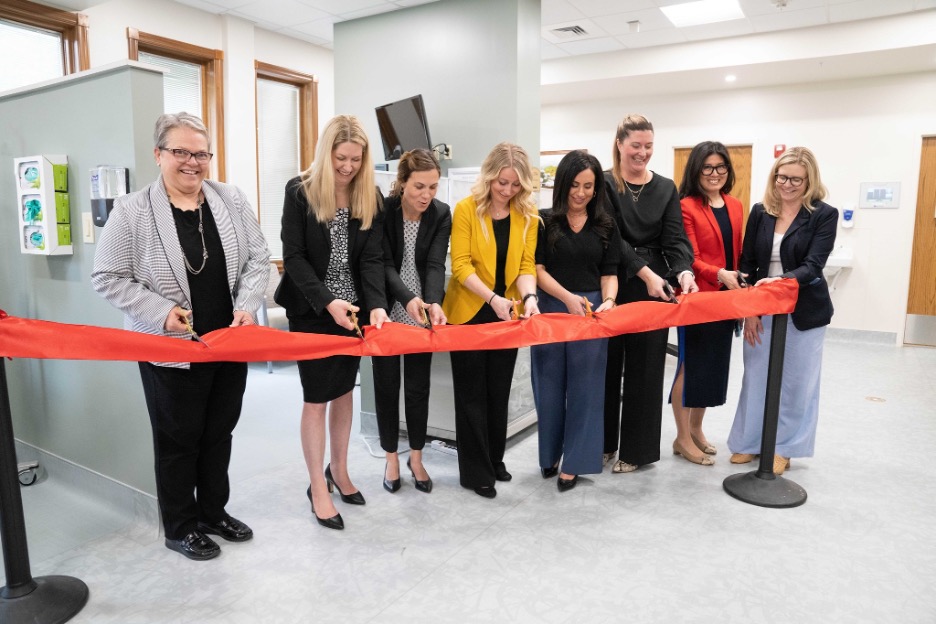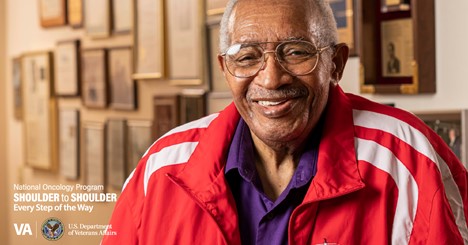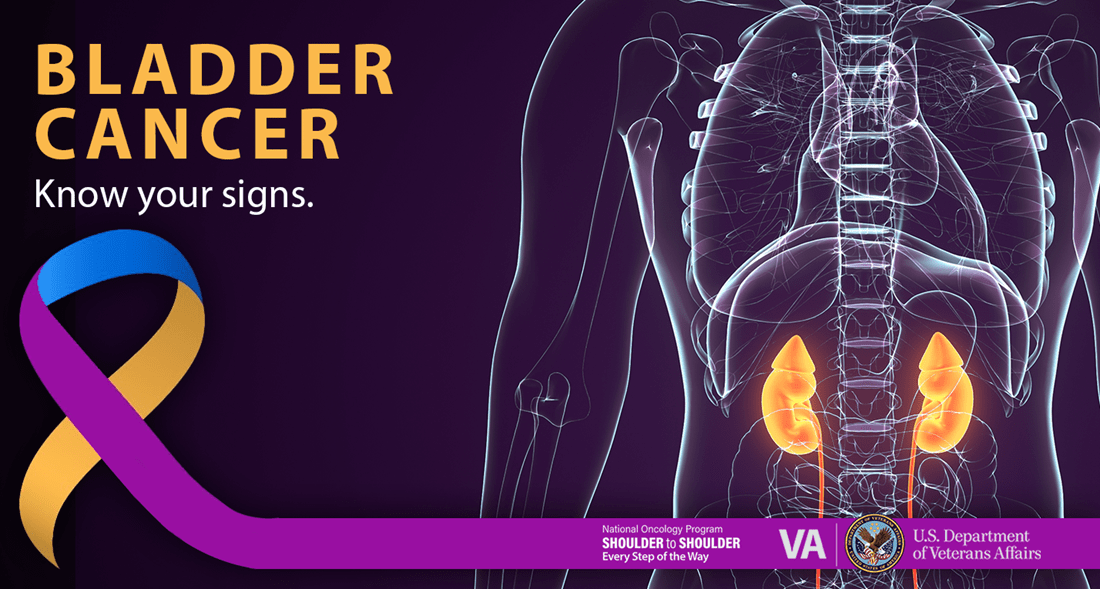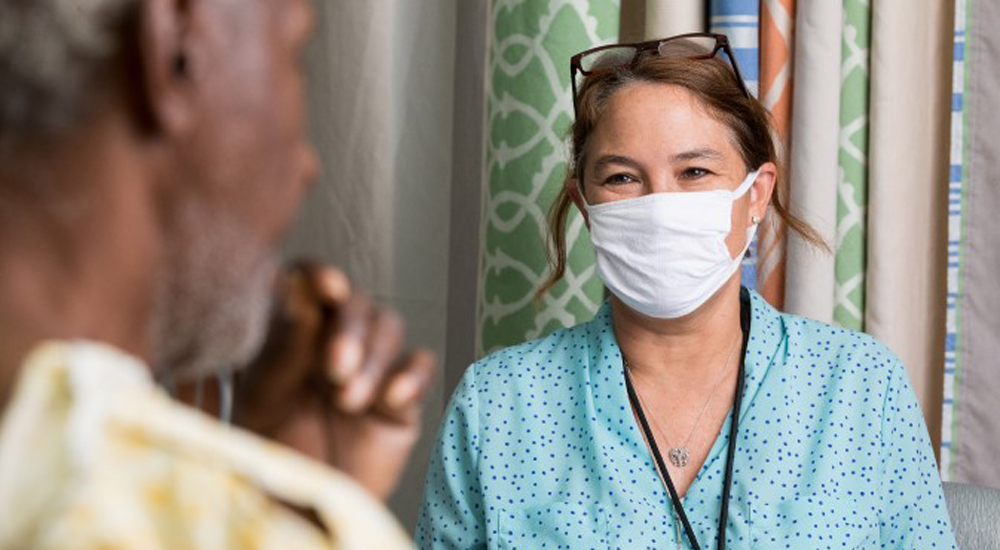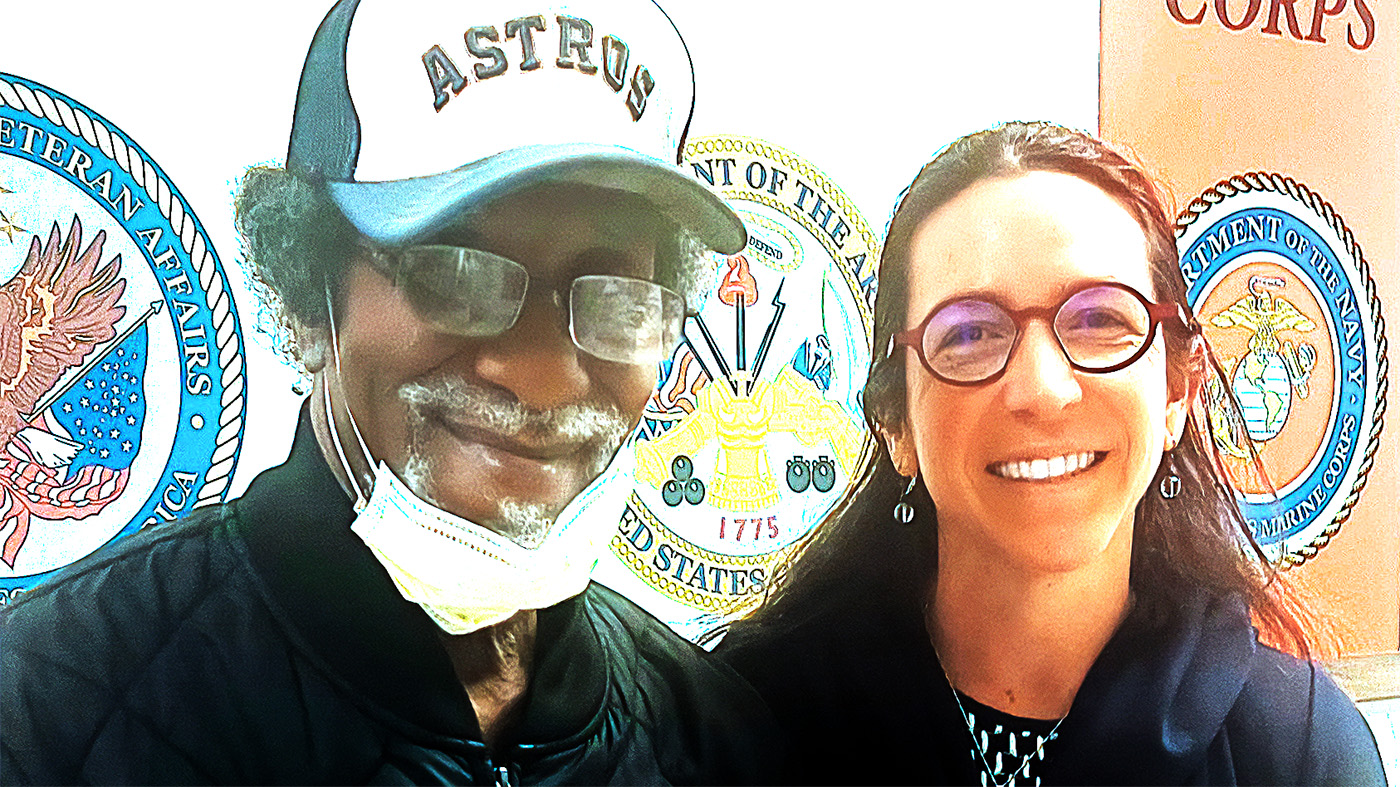The service reduces the burden of lengthy travel for Veterans and their caregivers, improving access to care and affording Veterans more time to focus on healing.
VA’s Breast and Gynecologic Oncology System of Excellence reduces barriers to care and provides support to Veterans with cervical cancer diagnoses.
VA can support you through a breast cancer diagnosis with access to genetic testing and multidisciplinary model approaches.
VA’s National Oncology Program is working to better deliver equitable cancer care through new initiatives and programs.
Approximately 3,200 Veterans are diagnosed with bladder cancer every year. VA's National Oncology Program is here for them.
In a decentralized clinical trial, Veterans can participate from their own homes or local VA instead of having to travel to a research site.
Lynch Syndrome is a collection of genetic mutations that can indicate an increased risk for colorectal cancer. Lifetime risk of colorectal cancer with this signature ranges from 10% to 80%.
VA brings colorectal cancer screening to Veterans’ homes while providing cutting-edge care.
Novel Infusion Care Delivery is a revolutionary infusion treatment program designed to improve access to infusion treatments for cancer care.
Targeted treatment delivers a gene that encodes a protein to a patient’s bladder so it can fight cancer.
In June, VA honors National Cancer Survivor Month by spotlighting the brave journey of Veteran cancer survivors and the many ways they can find support at VA beyond their cancer treatment.
Do you know the warning signs of skin cancer? July is UV Safety Awareness Month, and it’s important to know that anyone, no matter their skin tone, can get skin cancer.

